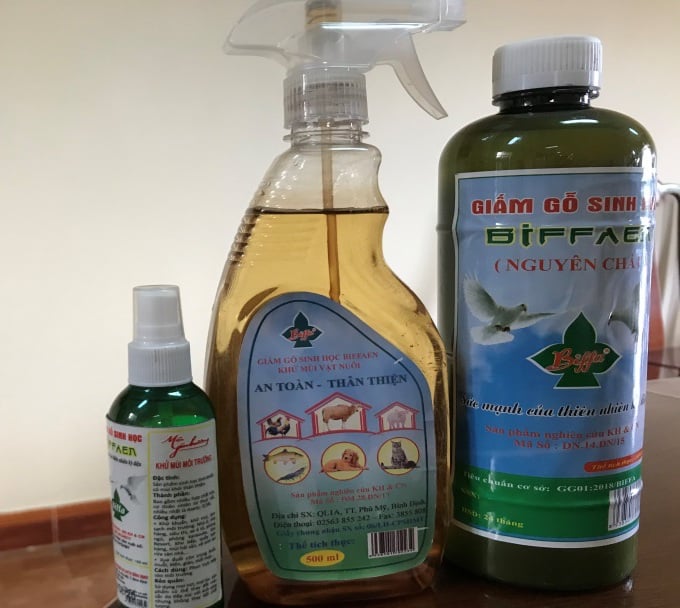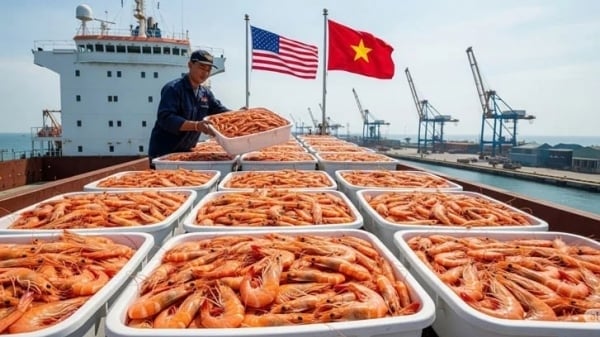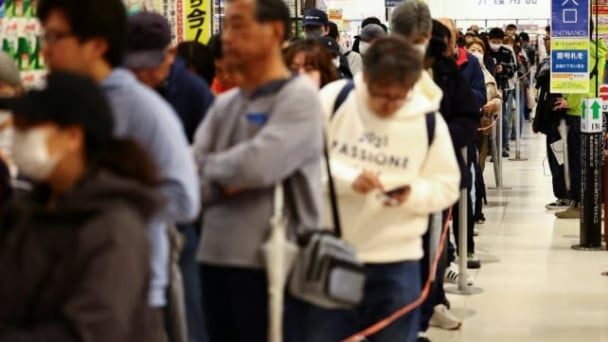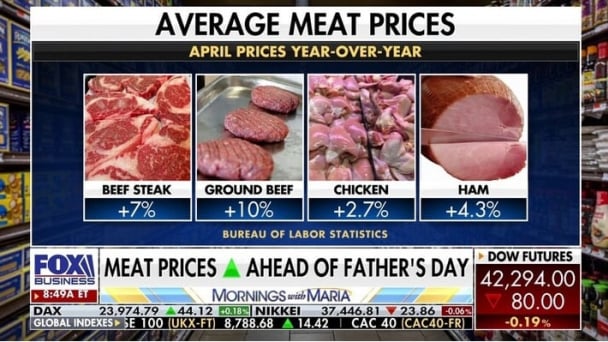June 16, 2025 | 18:42 GMT +7
June 16, 2025 | 18:42 GMT +7
Hotline: 0913.378.918
June 16, 2025 | 18:42 GMT +7
Hotline: 0913.378.918

Some biological wood vinegar products made by Binh Dinh Fertiliser and General Service Joint Stock Company.
Wood vinegar is a liquid produced by the destructive distillation of wood and other plant materials.
It is a by-product collected from the anaerobic pyrolysis of wood, containing many organic compounds such as alcohols, esters, acids, phenols and aldehydes. The most abundant component is acetic acid, accounting for about 3-5 percent.
It often contains up to 92 per cent of water and is a combination of some 200 organic compounds.
According to Nguyen Tuan Toan, director of Binh Dinh Fertiliser and General Service Joint Stock Company (Biffa), wood vinegar is very effective, saying the product brings practical benefits to farmers as well as the community.
Wood vinegar has been used in a variety of processes, such as industrial, livestock, household and agricultural products. But the most popular ones is for treatment of organic waste.
Thanks to its antibacterial properties and its special smell, wood vinegar is capable of driving such insects as flies, mosquitoes, ants and termites away as well as killing harmful creatures. It also helps promote plant growth while preserve agricultural products more effectively.
Toàn said that Biffa has been the first company in the country to research and produce Biffaen bio-wood vinegar.
Biffaen wood vinegar which produced by the company has been tested by the Central Highlands Agriculture and Forestry Science Institute and delivered good results. Specifically, the vinegar is effective in killing preventing fungus that kill pepper plants and coffee disease. Its effectiveness has been shown on some localities in the field of environmental deodorization and plant protection.
The safety of Biffaen wood vinegar has been certified by Center for Culture Collection and Genetic Resourse Conservation of Microorganisms and the National Institute of Food Control.
Posive feedbacks have been collected after 5 years of application of Biffaen bio-wood vinegar on agricultural and environmental fields (2015-2020). Its effiency has been proved on cultivation of vegetables, orchids as well as on livestock farms.
The company has been granted licence by the Vietnam Environment Administration, allowing the circulation of the product in waste treatment in Vietnam.
The company was waiting for permission from the Plant Protection Department under the Ministry of Agriculture and Rural Development, he said.
“Products are only eligible for circulation after receiving licence from the department," Toan said.
He said that it was easy to produce wood vinegar from biological charcoal making. However, to have qualified and best products it is a must to comply with the regulation on raw material selection process and quality control methods.
Product quality will not be stable due to its high water content or it is unsafe to recover wood vinegar from low or high pyrolysis for each material.
Vinegar yields and chemical composition can widely vary depending on the type of the woody raw material and the pyrolysis process parameters, e.g final temperature and heating rate.
Many countries have studied the applications of wood vinegar, especially in agricultural production.
Japan leads the field with the number of inventions, accounting for 52 per cent of the world’s patents. The Japanese government used wood vinegar in solving environmental problems after the 2011 tsunami.
Researchs published in Brazil showed that wood vinegar has an good effect on Saturniidae and is considered a fungicide. It also could lower the soil’s PH level caused by the use of chemical pesticides.
In China, studies made by researchers showned that if a correct amount of wood vinegar is used, it will increase soil bacteria while reducing up to 40 per cent of fungi.
Author: Dinh Thung. Translated by To Nhu. Edited by Duc Huy.

(VAN) Noting risks, report examines impacts of avian influenza, changing trade patterns since 2022, fish fraud, and shipping industry’s net-zero goals.

(VAN) Mr. Tran Quang Bao, General Director of the Forestry and Forest Protection Department, met and worked with the International Wood Products Association to promote cooperation in the field of timber trade.

(VAN) China's outbound shipments of rare earths in May jumped 23% on the month to their highest in a year, though Beijing's export curbs on some of the critical minerals halted some overseas sales.

(VAN) To sustain capital flow, administrative reform alone is not enough; what farmers truly need is an ecosystem where both government and businesses grow together in support.

(VAN) Vietnam and the United States are proactively working together, each in their own way, to ensure that every container of agricultural goods carries not just products, but also long-term trust and value.

(VAN) Stores have started selling rice from the government’s stockpile to feed demand for the staple.

(VAN) Omaha Steaks CEO says rebuilding cattle herds will take about a year to ease price pressures.